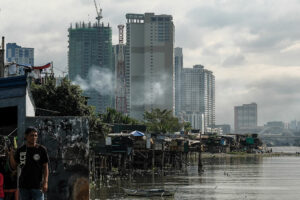By John Victor D. Ordoñez, Reporter
THE GOVERNMENT of Philippine President Ferdinand R. Marcos, Jr. should boost law enforcement and accountability while cutting bureaucratic red tape as part of efforts to fight corruption, political analysts said at the weekend.
This comes after the country moved up a spot in Transparency International’s 2024 Corruption Perceptions Index, placing 114th out of 180 countries with a score of 33 out of 100. It was the nation’s best ranking since 2018, when it ranked 99th.
“Singapore’ very high ranking is due to its strong state institutions, credible enforcement of the rule of law and professionalized bureaucracy,” Jose Enrique A. Africa, executive director at think tank IBON Foundation, said in a Viber message.
Singapore ranked third in the global corruption index and first in the Asia-Pacific region with a score of 84.
The Philippines score is below the global average of 43, and the Asia-Pacific region’s average of 44. A score of 0-9 means highly corrupt, while a score of 90-100 means “very clean.”
The Philippines lagged most of its regional peers in the index, which ranked countries and territories according to the levels of public-sector corruption perceived by experts and businesspeople.
Countries in the Asia-Pacific region were prone to the misuse and theft of funds meant for climate financing programs, Transparency International said in the report.
“Improving the corruption ranking may convince investors who are willing to engage in tech transfers with us to actually go into business with us since we’re demonstrating a capacity to do business without being too rapacious and greedy about it,” Hansley A. Juliano, who teaches political science at the Ateneo de Manila University, said in a Facebook Messenger chat.
“We clearly have fallen short of creating enabling mechanisms for combatting corruption and promoting accountability.”
In the report, Transparency International said countries should strengthen law enforcement and oversight bodies, while ensuring whistleblowers, civic groups are protected from intimidation.
Governments in the region are still failing to deliver on anti-corruption pledges amid a climate crisis, Transparency International regional advisers for Asia-Pacific Ilham Mohamed, Yuambari Haihuie and Urantsetseg Ulziikhuu said in a statement.
“Manila’s improvement in the index won’t override more fundamental problems of a limited domestic market because of mass poverty, low domestic levels of technological or industrial capacity, and sluggish global growth, trade and investment,” Mr. Africa said.
“A development strategy that prioritizes national industry and reduces inequality is more transformative than simply improving scores and rankings,” he added.

